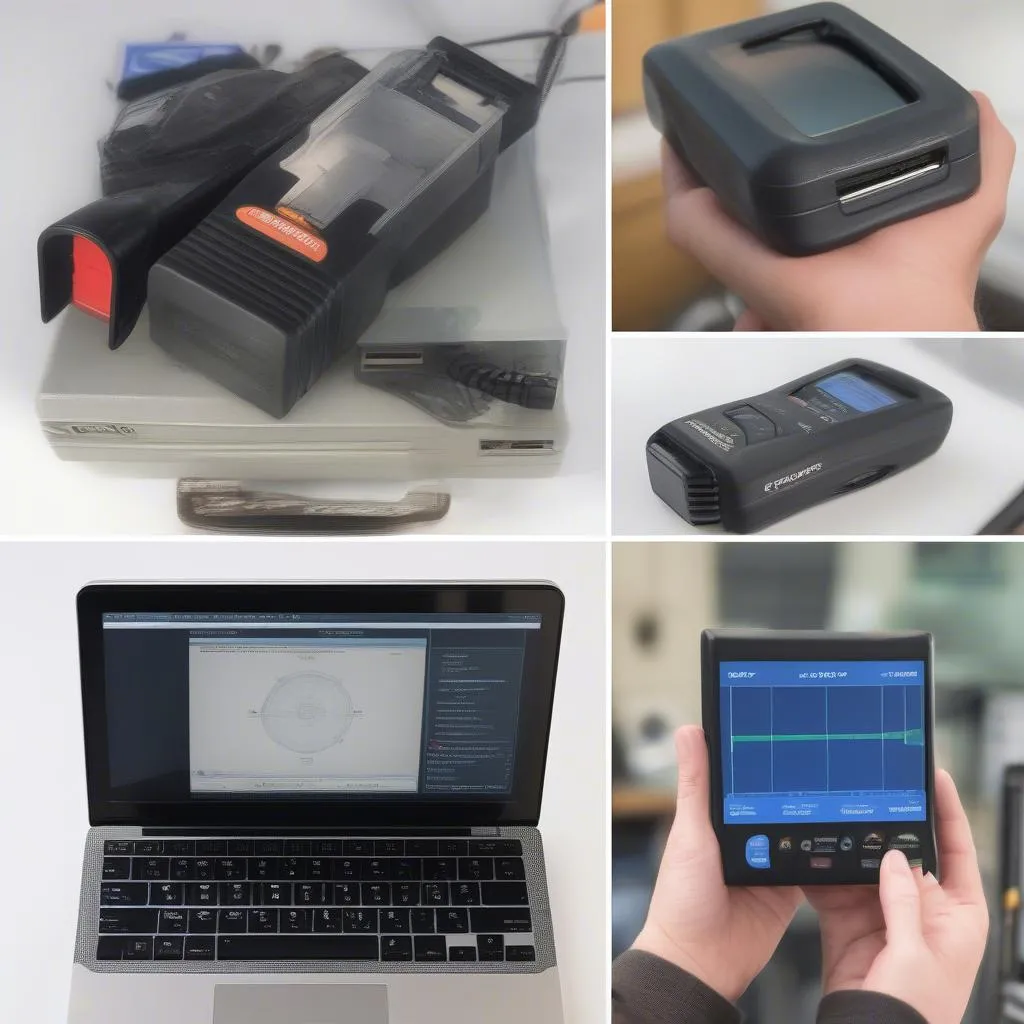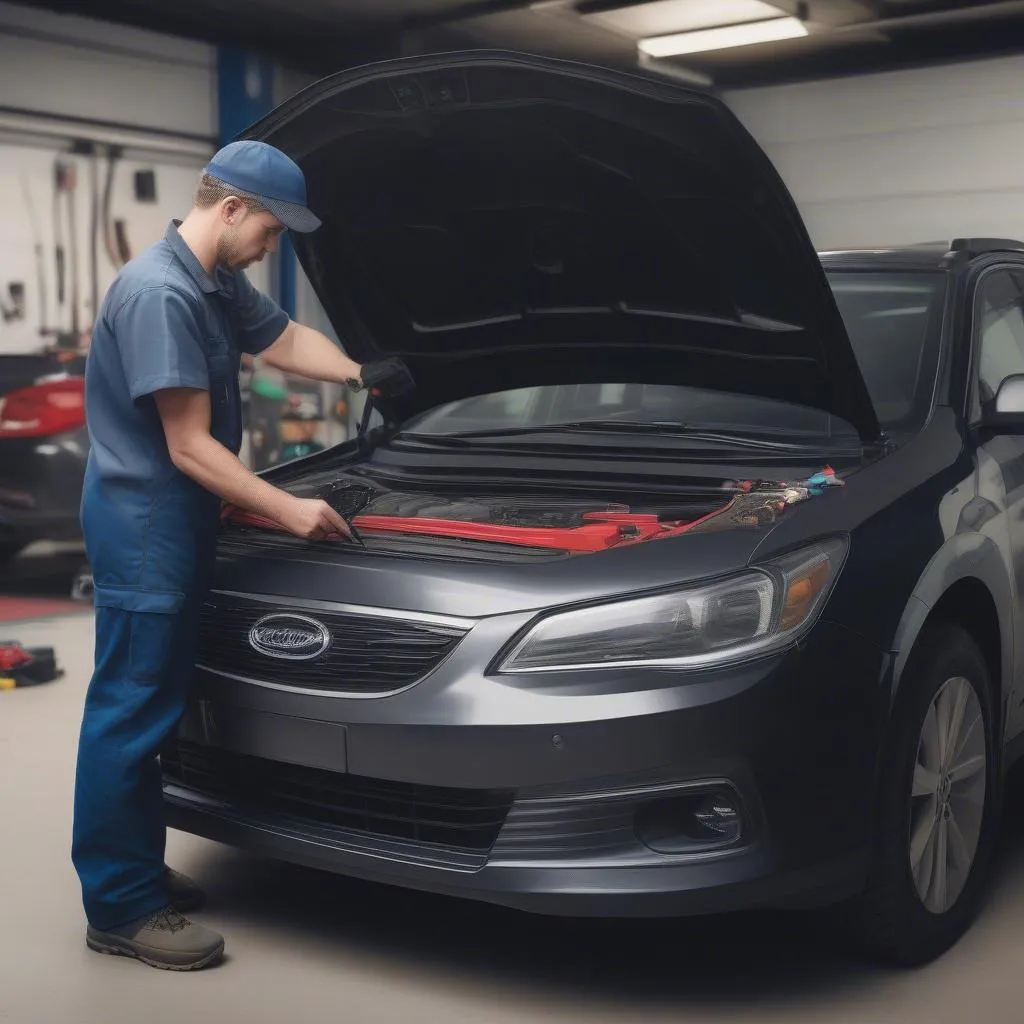Imagine this: you’re cruising down the Pacific Coast Highway, California, the sun is setting, and your favorite song is on the radio. Suddenly, a dreaded warning light pops up on your dashboard. You panic, clueless about what it means. This, my friend, is where an OBD scanner becomes your new best friend.
What is an OBD Scanner?
An OBD scanner, or On-Board Diagnostics scanner, is a device that plugs into your car’s OBD-II port, typically located under the steering wheel. Think of it as a translator between you and your car’s computer system. It reads and displays diagnostic trouble codes (DTCs) that indicate what’s wrong with your vehicle.
Why Should I Care?
Knowing what’s going on with your car empowers you. Instead of feeling lost and at the mercy of a mechanic, you can:
- Save money: By understanding the problem, you can avoid unnecessary repairs or get a better price.
- Save time: Identify issues quickly and get them fixed promptly, reducing downtime.
- Gain peace of mind: No more guessing games! Get to the root of the problem and drive with confidence.
Choosing the Right OBD Scanner
Not all OBD scanners are created equal. They range from basic code readers to advanced professional-grade tools like the Dealer Scanner For European Cars. The best choice for you depends on your needs and technical expertise.
Types of OBD Scanners:
- Basic Code Readers: These affordable scanners read and clear basic DTCs. Perfect for DIY enthusiasts.
- Mid-Range Scanners: Offer more features like live data streaming, allowing you to monitor engine performance in real-time.
- Professional-Grade Scanners: These comprehensive tools offer advanced diagnostics, coding, and programming capabilities, often used by mechanics and experienced technicians.
 Types of OBD Scanners
Types of OBD Scanners
Common Questions about OBD Scanners:
Q: Can an OBD scanner fix my car?
A: While it can’t magically fix your car, it provides the information you need to identify the problem. Think of it as a detective, not a mechanic!
Q: Are OBD scanners universal?
A: Most cars manufactured after 1996 in the US and 2001 in Europe use the OBD-II standard, making them compatible with most scanners. However, some car manufacturers (looking at you, BMW!) have their own proprietary systems. For those, a specialized scanner like the ones we offer at Diag XCar (https://diagxcar.com/obd-scanner-for-bmw/) might be necessary.
Q: Do I need a mechanic to use an OBD scanner?
A: Basic code readers are user-friendly and require minimal technical knowledge. However, for more advanced functions, consulting a professional is recommended.
 Mechanic using OBD Scanner on a car
Mechanic using OBD Scanner on a car
Beyond Diagnostics: The Future of OBD Scanners
OBD scanners are evolving beyond simple diagnostics. With the rise of connected cars and telematics, they’re becoming even more powerful, enabling features like:
- Remote diagnostics: Mechanics can access your car’s data remotely, allowing for quicker diagnosis and potential software updates.
- Predictive maintenance: By analyzing driving patterns and vehicle data, scanners can predict potential problems before they arise.
As Robert Thompson, a renowned automotive engineer, once said, “The future of car repair lies in information. The more we know, the better equipped we are to fix it.”
Need Help Choosing the Right OBD Scanner?
Navigating the world of OBD scanners can be overwhelming. That’s where we come in! At Diag XCar, we offer a wide selection of OBD scanners for all your needs. Contact us on WhatsApp at +84767531508 and our team of experts will gladly assist you in finding the perfect tool for your vehicle.
Related Articles:
Don’t let a warning light ruin your day! Empower yourself with an OBD scanner and take control of your car’s health.